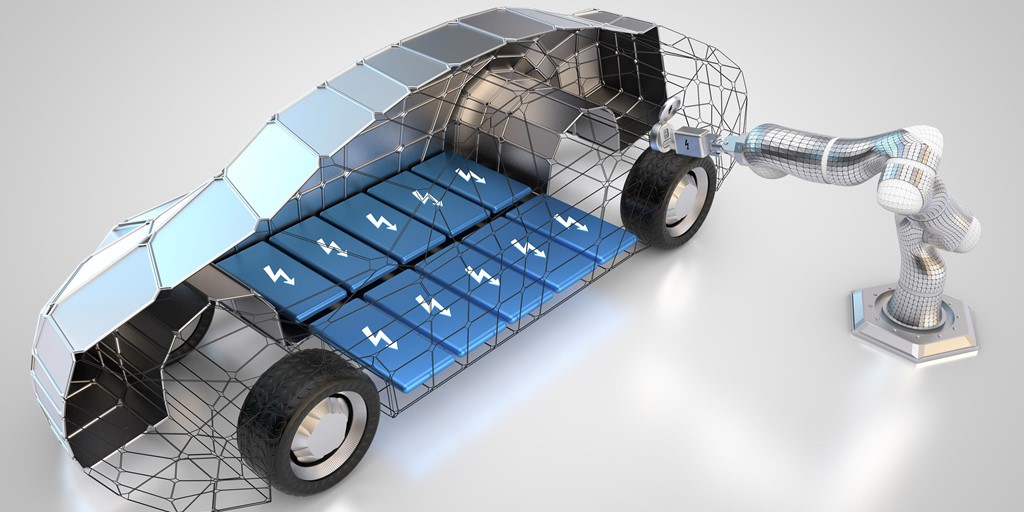Evolving Applications for Planetary Roller Screws
Planetary roller screws are being used in an ever-increasing range of applications in various industries. Evolving market segments include electric aircraft, electric vehicles, robotics, industrial automation, and the oil and gas industry.
- Aerospace
- Automotive
- Oil and Gas
- Machine Tool and Fabrication
However, the fastest growing segment involves electric vehicles and aircraft. In the automotive and aerospace sectors, planetary roller screws are often used to enhance efficiency of embedded applications such as flight control and vehicle control sub systems. This trend should continue over the next several years as demand for electric-powered trucks, cars, and aircraft continues to escalate.
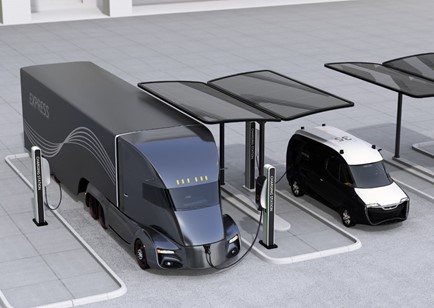
In addition to the vehicles themselves, OEM's will require optimized manufacturing capability to produce them. Specific automated process operations include:
- Pressing and Inserting
- Robotics
- Welding Guns
- Paint Sprayers
- Precision Machining Equipment
Automated industrial systems, assembly cells, and production lines continue to get smaller. As a result, manufacturers are continuing to develop more compact systems that save facility floor space. OEM's are relying more on automated industrial systems to enhance product performance and optimize manufacturing process efficiency. Specific requirements include greater reliability, lower power consumption and increased precision. As a result, Planetary Roller screws are widely used in automated applications for various operations requiring high levels of repeatability and accurate linear motion.

Delivering the highest level of performance.
Planetary Roller Screws transform rotary motion into linear movement. The rolling elements consist of threaded rods which enable excellent force density, very high load capacities, and long life. Planetary roller screws provide high levels of load, speed, and duty cycle. In addition, they offer:
- High Axial Rigidity
- Outstanding Positioning Accuracy
- Mechanical Repeatability
- Low Sensitivity to Contamination
- Long Life Cycle
- Low Maintenance
- Fast Acceleration
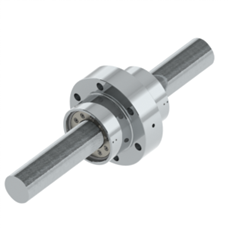
Due to the increase in contacts point compared to ball screws, roller screws have significantly increased dynamic load capacity (within the same size package). This contributes to a much higher life span and dramatically increased static load capacities. The increased contact points also enable stronger rigidity a much higher tolerance to shock and stress. This makes them ideal for applications that require continuous stressing.
Planetary Roller screws assemblies require very little maintenance when compared to hydraulic and pneumatic systems. There are no recycled ball bearings with roller screws. Thus, they can handle much higher rotational speeds (with faster acceleration).
Cutting edge industrial automation machines require increased positional accuracy at higher speeds. In some applications, traditional linear screw technologies may not be ideal for the challenging application. Planetary roller screws are the most optimal choice in applications where precision and reliability cannot be sacrificed. If a ball screw design falls short, then a planetary roller screw should be considered.
Knowing the basics of their anatomy and specifications can help to determine if roller screws are the right solution for your application.
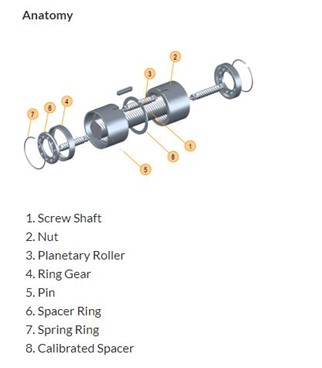
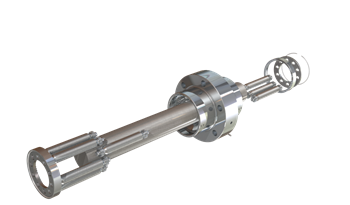
The cost benefit of these electromechanical systems provides significant return on investment with less power consumption, smaller footprint, low maintenance and very long service life. By adding an electric motor, they can easily be retrofitted as a drop-in replacement for pneumatics or hydraulics.
Nook Planetary Roller Screws (NRS), a member of the lead screw family, are remarkable devices designed to convert rotary motion into axial force or vice versa. They offer multiple advantages and reliability for the most demanding applications due to their:
- High efficiency rolling motion even in relatively shallow lead designs.
- Multiple contact points that carry large loads and with very high resolution (small axial movement) when using very shallow leads.
- High rotational speeds with faster acceleration without adverse effects.
Specifications
- Diameters – 8 to 75mm (.31 to 2.95″)
- Leads – 2 to 42mm (.079 to 1.65″)
- Precision Lead accuracy – IOS 5 (standard) ISO 3 & ISO 1
- Materials – Medium carbon induction hardened alloy steel screws and High Grade bearing steel rollers should be specified
- Nut Styles – Split or one-piece solid nuts in a cylindrical or flanged style
